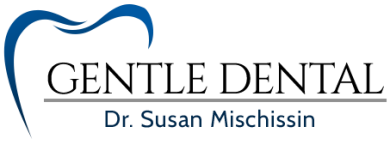
At Gentle Dental, we offer a wide range of comprehensive services to prevent and restore the health of your natural teeth. With over 25 years of experience in private practice, Dr. Mischissin has the knowledge and expertise to craft customized treatment plans that can meet your needs.
We believe that the best treatment is prevention and will focus our efforts on keeping your teeth in the best of health. If you experience trauma or have tooth decay, we offer several treatment options to preserve as much of the natural tooth as possible and restore your oral health.
Teeth Cleanings
You should schedule biannual appointments at our Cape May Court House location for professional cleanings and checkups. During these visits, we’ll examine the overall health of your teeth and gums to let you know of any issues so we can handle them before they become problematic.
We’ll also get rid of any plaque and tartar buildup and polish your pearly whites. Our team will be sure to provide you with helpful tips on areas that have been overlooked so you can get the most out of your at-home oral hygiene routine.
Fillings
The purpose of a filling is to reinforce the strength of a damaged tooth. When bacteria builds up, it causes decay or a cavity which requires a filling to prevent further damage and restore the tooth. If you have a cracked, chipped, or broken tooth, a filling will prevent infection and add stability to the tooth.
There are a few signs that indicate you may need a filling:
- Sensitivity to hot or cold
- Tooth pain, especially when chewing
- Visible cavity
- Discolored tooth
- Broken or chipped tooth
Prior to placing your filling, we’ll numb the tooth so you won’t feel a thing throughout the treatment.Once the anesthesia takes effect, we’ll remove the decay from your tooth. Finally, we’ll fill it with a tooth-colored composite so the color will seamlessly blend in with your natural teeth. The whole process takes about 20 minutes and your tooth will be completely restored.
Dental Crowns and Bridges
Crowns
A dental crown is a customized tooth-like prosthetic that covers your natural tooth to restore its function and appearance. There are several reasons that Dr. Mischissin may recommend a dental crown:
- To reinforce the strength of a weak tooth
- To complete a restoration procedure such as a dental implant or bridge
- To cover a decayed tooth that can no longer be restored with a filling
- To cover a severely discolored or broken tooth
A dental crown procedure typically takes two appointments and can be completed in a few steps, including:
- Prior to the procedure, your tooth will be numbed so you’ll be pain-free
- Any decay will be removed
- Your tooth will be shaped so the crown can fit over your natural tooth and blend with the contour of your smile
- A temporary crown will be placed over your natural tooth
- Impressions will be taken of your tooth and sent to a lab where they’ll craft your beautiful customized crown
- You’ll come back for your second appointment where we’ll cement your permanent crown in place and ensure it fits properly
Bridges
Living with gaps in your smile can cause emotional and oral health problems. A fixed dental bridge can complete your smile by using one or more natural-looking prosthetic teeth called pontics. The pontics are supported by your adjacent tooth on each side, known as anchor teeth. To ensure your bridge is durable and long-lasting, we’ll cap your anchor teeth with porcelain crowns for added strength.
Bridges are more stable than dentures, so you won’t have to worry about slippage or difficulty speaking. The process is also less invasive than dental implants, since you won’t need to undergo surgery. There are various types of bridges to choose from that can meet your specific needs:
- A traditional bridge is the most common type of bridge that consists of placing one or more pontics that are supported by your surrounding teeth. The anchor teeth will also be covered with crowns to reinforce the strength and bond between the teeth.
- A cantilever bridge is the preferred treatment method if there’s only one tooth available to support the bridge. It consists of a single pontic fused to one or more crowns and is typically used on front teeth.
- A Maryland bridge is a porcelain crown that’s fused to metal wings that are bonded to surrounding teeth. Unlike other bridges, this method doesn’t require any alterations to the anchor teeth.
Tooth Extractions
A tooth extraction is used as a last resort to restore your oral health. Dr. Mischissen may recommend an extraction if:
- You have advanced periodontal disease
- Trauma renders the tooth unsalvageable
- You have severe decay that can’t be treated with a filling or crown
- An impacted wisdom tooth may cause overcrowding or harm other teeth
- Prior to an orthodontic treatment
While many patients fear the thought of having a tooth pulled, the consequences of delaying the procedure are far more complex than the extraction process. At Gentle Dental, we understand the importance of keeping you comfortable throughout your treatment.
Dr. Mischissen will communicate with you throughout the procedure and take extra care to ensure you’re free of pain. A tooth extraction is a simple process:
- The tooth and the surrounding surgical site will be numbed
- It will be loosened using a tool called an elevator
- Forceps will be used to remove the tooth
Once your gums have completely healed, we’ll complete your smile with one of our restoration treatments. Whether you prefer a dental bridge or a dental implant, we’ll restore health and beauty to your smile.
It’s vital to fill the space left by an extraction when it’s time. Failing to complete your smile can cause bone loss and the surrounding teeth will shift to fill the gap.
Gently Restoring Your Oral Health
At Gentle Dental, we use the latest technology coupled with the newest techniques to ensure every treatment is thorough and precise. We’re committed to preventing oral health issues and preserving the natural beauty and function of your teeth. Contact our office to schedule a consultation by calling (609) 465-4411 and discover how we can keep your smile in excellent shape.
Frequently Asked Questions
Dental crowns typically last between 5 to 15 years. The longevity of the restoration depends on how well you care for your teeth and the amount of wear and tear your teeth are exposed to. To get the most out of your dental crown, you’ll want to brush your teeth twice a day, floss every day and rinse between meals.
In addition to following a regular oral hygiene routine, you’ll want to schedule biannual checkups at our office so we can ensure your teeth and dental crown are in excellent condition. A few ways you can extend the life of your crown include:
- Don’t use your mouth as tools
- Address teeth grinding
- Don’t bite into hard food or candy
If a bridge becomes loose, it may be possible to remove and re-cement it. Fixed dental bridges are meant to stay in place for 5 to 15 years, so removing a dental bridge may cause irreparable damage to the pontics and Dr. Mischissin may recommend a new appliance.
If you damage your bridge, contact our office right away so we can remedy the situation. You’ll want to avoid trying to fix the bridge on your own, as this typically causes more problems and can damage your teeth and surrounding structures.
The surgical site typically takes 1 to 2 weeks to heal following a tooth extraction. However, you’ll want to wait 6 to 8 weeks after the procedure to be fitted for a restoration such as a dental bridge or dentures. This will allow time for all of the swelling to diminish so you’ll get a good fit on your new restoration.
The healing period depends on a number of factors, including the time it takes your body to recover. There are other factors that will help you on your road to a successful recovery, including:
- Apply ice and take pain relievers such as Ibuprofen to reduce pain and swelling
- Eat soft foods
- Take prescribed antibiotics
- Keep your mouth clean
- Avoid rinsing for the first 24 hours, then rinse using a saline solution
In addition to the previously mentioned tips, you’ll want to continue brushing twice a day and flossing daily — just make sure that you’re extra careful around the extraction site.

